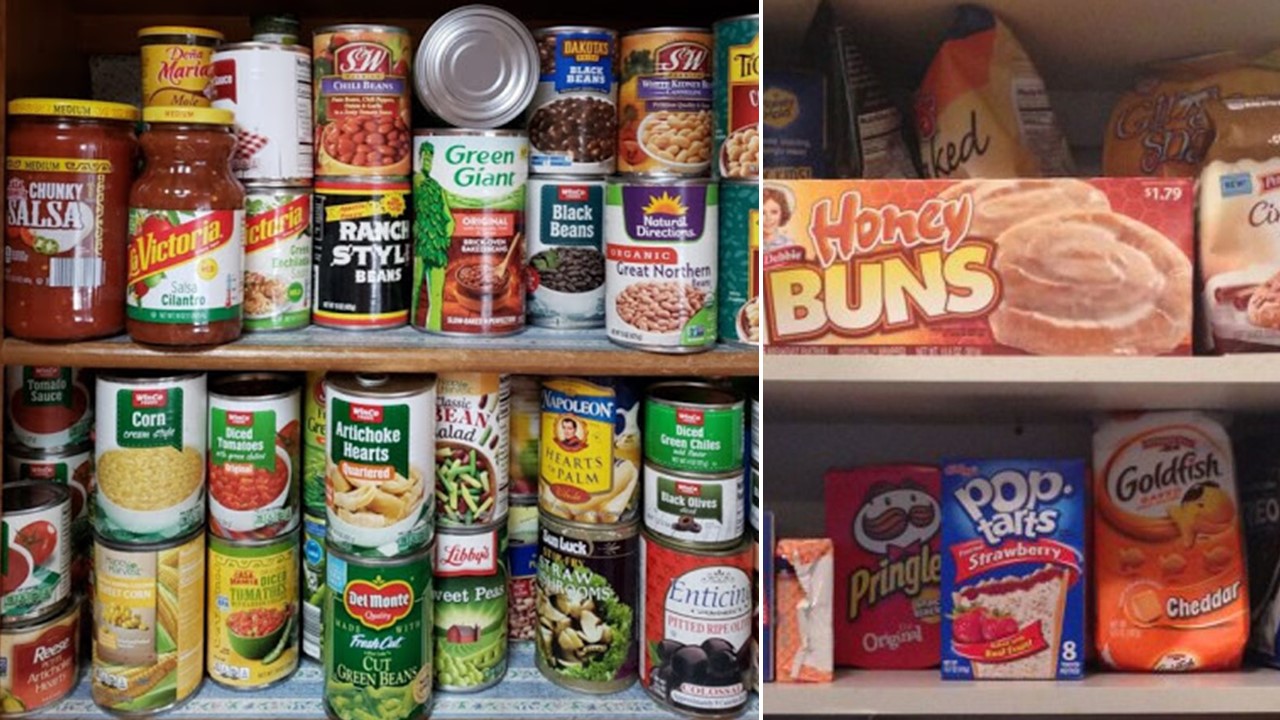
Colorectal cancer remains a significant health concern, particularly for the Black community, which faces higher incidence rates and lower survival rates compared to the white population. According to a study, Black Americans are about 20 percent more likely to develop colorectal cancer and 40 percent more likely to die from it than other groups. Despite these statistics, screening rates among Black Americans are historically lower, contributing to delayed detection and poorer outcomes.
BlackDoctor.org sat down with Dr. Folasade P. May, Co-leader of the Stand Up To Cancer Colorectal Cancer Health Equity Dream Team to discuss the latest data on colorectal cancer disparities, including the factors driving these trends and the importance of early detection. Dr. May, who is actively working to address these disparities in medically underserved communities and improve access to screening and care, sheds light on why discussions about colorectal cancer are stigmatized in the Black community, hindering awareness and prevention efforts as well as what Black people need to know about the disease.
Here is what you need to know about colorectal cancer, according to Dr. May:
1. Colorectal Cancer is Deadly, But Highly Preventable
Colorectal cancer is the second leading cause of cancer-related deaths in the United States. Despite its high incidence and mortality rates, there is often a stigma associated with discussing colorectal cancer due to its association with the colon and rectum.
"Overall, colorectal cancer is the number two cancer killer in the country. A lot of people talk a lot about breast cancer and prostate cancer. People even talk about brain cancer a lot, which is actually pretty uncommon,” Dr. May shares. “But there's really a lot of stigma in talking around colorectal cancer because it's a back-end, saying word. Some people don't want to talk about it, and that's really unfortunate because, even though it's the number two cancer killer, it's highly preventable."
2. Your Risk is Elevated
Black individuals are at a higher risk of developing colorectal cancer compared to other racial groups. Factors such as family history, age, diet, and lifestyle can contribute to this increased risk. This makes it essential for you to be aware of these risk factors and take proactive steps to manage them.
"We know that colorectal cancer risk is associated with many lifestyle factors, and unfortunately, many of these lifestyle factors are more commonly practiced in Black communities,” Dr. May shares.
RELATED: Colon Cancer Isn’t A Man’s Disease: What Every Woman Must Know
3. Screening Gaps: We Aren’t Checking Often Enough
Screening for colorectal cancer is crucial for early detection and treatment. Current guidelines recommend that everyone, including Black individuals, should start regular screenings at age 45.
However, those with a family history of colorectal cancer may need to start screening earlier. Understanding these guidelines and following them can help detect colorectal cancer in its early stages when it is most treatable.
“When you look at Black individuals, we have unique challenges in that we have the highest rates of this disease, we're more likely to die from this disease, and we are less likely to get screened... Our screening rates, although screening can be life-saving, tend to be under the screening rates that we see in affluent populations and white populations,” Dr. May, who is using a grant to facilitate screenings in neighborhoods across the United States with a high concentration of underinsured or uninsured people of color, emphasizes.
These screenings are important whether or not you have symptoms. “There's a misconception that you have to have symptoms to be screened or you have to have a family history to be screened, and that's wrong, Dr. May adds."
4. Your Choices Affect Your Risk
As noted above, lifestyle factors play an important role in colorectal cancer prevention.
"We know that colorectal cancer is more common in people who smoke, people who are overweight or obese, people who have diabetes. There's an association with low physical activity and there's also an association with diet," Dr. May shares.
5. There is No One-Size-Fits-All Approach to Diet Changes
Diet plays an important role in colorectal cancer prevention. However, it is more important to adopt a diet that meets your individual needs and preferences, particularly in the context of colorectal cancer prevention, than to adopt a specific diet.
"When it comes to diet and colorectal cancer prevention, it's important to focus on what works for you. While certain diets, like the Mediterranean diet, have been associated with a lower risk of colorectal cancer, it's important to find a diet that you can sustain and that fits your cultural and personal preferences." Dr. May adds. "Rather than focusing on strict dietary rules, it's important to focus on overall dietary patterns and lifestyle habits. This includes incorporating a variety of fruits, vegetables, whole grains, and lean proteins into your diet, while also being mindful of portion sizes and limiting processed and red meats."
Ultimately, Dr. May says the perfect diet is about balance. “No single food or nutrient is responsible for preventing or causing colorectal cancer. Instead, it's about the overall quality of your diet and lifestyle. By adopting a balanced and varied diet that meets your nutritional needs, you can help reduce your risk of colorectal cancer and improve your overall health,” she shares.
6. A Colonoscopy Isn’t Your Only Option
While colonoscopy is the most common screening method for colorectal cancer, there are other options available. These tests are convenient and effective in detecting colorectal cancer early.
“Everyone talks about colonoscopy, and it is the most common way to screen in the United States, but it's not the only one. Like we're using in this Stand Up To Cancer project, there are tests that you can do in the comfort of your home. They're stool-based. It comes in a kit with instructions on how to have a normal bowel movement in the toilet bowl but safely and cleanly collect the sample and put it in a container where it can be sent off to a lab testing,” Dr. May shares. “You don't necessarily have to take a day off and do a prep and have a whole procedure that you might be a little nervous about doing. You can get screened in the comfort of your own home."
7. Screening Doesn’t Have to Be An Uncomfortable, Painful Process
If you have questions or concerns about your screening options, it’s important to discuss them with your healthcare provider to determine the best approach for your health needs.
"I think that there is such messaging in the media that it's just a painful, horrible experience, and it shouldn't be. The hardest part is the prep, which is the day before when you have to literally drink a laxative to clean out your bowel track and that can be uncomfortable. You can't eat solid food that day. But the day of the procedure, you should be completely asleep. You should be comfortable, and you should wake up feeling like you had the best nap of your life. So, I do think the technology is a little bit better, and I do think we're paying attention to patient comfort,” Dr. May shares.
RELATED: 4 Signs That a Young Adult Might Have Colon Cancer
8. Colorectal Cancer is a Rising Concern Among Younger Adults
Although the majority of colorectal cancers occur in people older than 50, there has been a recent upward trend of younger people developing the disease. Through her work with Stand Up To Cancer, Dr. May is committed to raising awareness about the increasing incidence of colorectal cancer in younger individuals and developing strategies to address this concerning trend.
"We are seeing a disturbing trend of colorectal cancer occurring in younger individuals, including those in their 30s and 40s. This trend is especially pronounced in the Black community, where colorectal cancer is being diagnosed at younger ages compared to other racial and ethnic groups," Dr. May notes.
To address this, Dr. May emphasizes the need for increased awareness and vigilance among younger individuals. "It's important for young people, especially those with a family history of colorectal cancer or other risk factors, to be aware of the signs and symptoms of colorectal cancer and to discuss screening options with their healthcare provider," she adds.
She also highlights the importance of addressing the underlying causes of this trend. "Understanding why colorectal cancer is occurring at younger ages is critical. Factors such as diet, obesity, and sedentary lifestyle may play a role, and more research is needed to fully understand these factors and how they contribute to colorectal cancer risk,” she says.
9. Advocacy is Key
Self-advocacy is an important and often overlooked part of colorectal cancer screening and care.
"Advocating for yourself is crucial when it comes to colorectal cancer screening and care. If you feel that your concerns are not being addressed, seek a second opinion,” Dr. May advises.
10. Clinical Trials Unlock Tomorrow's Cures
Dr. May also highlights the significance of participating in clinical trials.
"Participating in clinical trials and research is important for advancing our understanding and treatment of colorectal cancer. By participating, you can help future generations and contribute to finding better treatments,” Dr. May says.
If you're interested in supporting critical research efforts like Dr. May's, consider donating to Stand Up To Cancer. Visit standuptocancer.org and click on the donate button at the top right corner to contribute to the fight against colorectal cancer. Your donation can make a difference in advancing research and improving outcomes for those affected by this disease.








